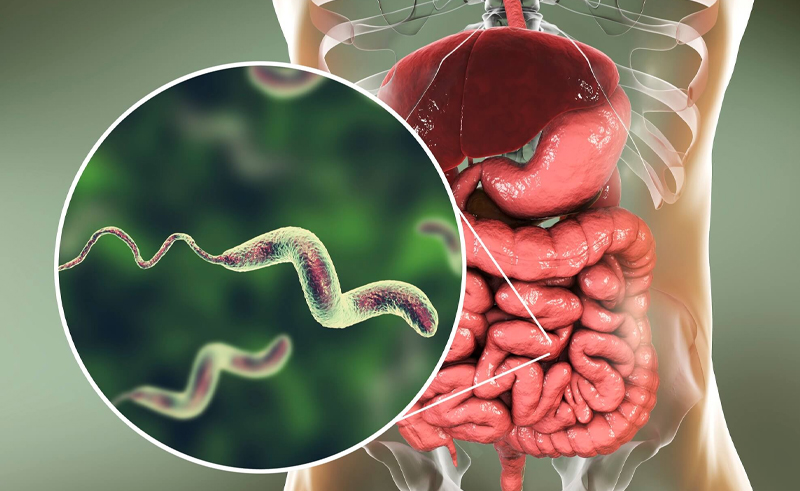

Diarrhoea is a common problem, happening to many a few times each year. Often it is present alone, remains for a few days, and goes on its own. Sometimes it may be associated with other symptoms like nausea, vomiting, abdominal pain, or weight loss. The prolonged presence of diarrhoea indicates another problem, such as irritable bowel syndrome (IBS), celiac disease, or inflammatory bowel disease (IBD). Signs and symptoms of Diarrhoea include the passing of loose watery stool, bloating, nausea, fever, and abdominal cramps, to name a few.
There is a number of diseases and conditions that can cause diarrhoea. The most common remains to be viruses and infections by bacteria. Many medicines such as antibiotics, anti-cancer drugs, and antacids with magnesium can cause diarrhoea. Many people who have Lactose intolerance can experience diarrhoea after consuming dairy products as lactose is present in milk products. Allergic to fructose, sugar in fruits and honey can lead to diarrhoea in people who have trouble digesting it. Chronic diarrhoea may have a number of other reasons such as IBS, Crohn’s disease, ulcerative colitis, celiac disease, microscopic colitis, and small intestinal bacterial overgrowth responsible for diarrhoea.
Many diarrhoea cases do not need medical attention. They are self-limited and go away with little care and modifications in dietary habits for a few days. The main point remains to keep the body hydrated and eat a balanced diet. Severe cases require medical attention and few diagnostic tests. Experts may recommend a Stool test to check for blood, bacterial infections, parasites, and inflammatory markers. Breath tests help experts to check for fructose, lactose intolerance, and bacterial overgrowth. Endoscopic evaluations of the digestive tract help experts rule out organic abnormalities. Over -the counter medicines help in controlling diarrhoea. Probiotics many times help establish a healthy biome to combat diarrhoea
Diarrhoea causes dehydration which can be life-threatening. It is dangerous for children and older adults or people with the weak immune system. Watch out for signs of dehydration and immediately run for medical help. In young infants and small children, symptoms of dehydration include dry diapers for more than three hours, fever, crying without tears, and sunken appearance of abdomen, eyes, or cheeks. Adults will experience excessive thirst, fatigue, little or no urination, and fatigue.